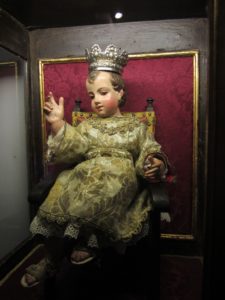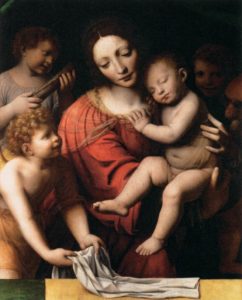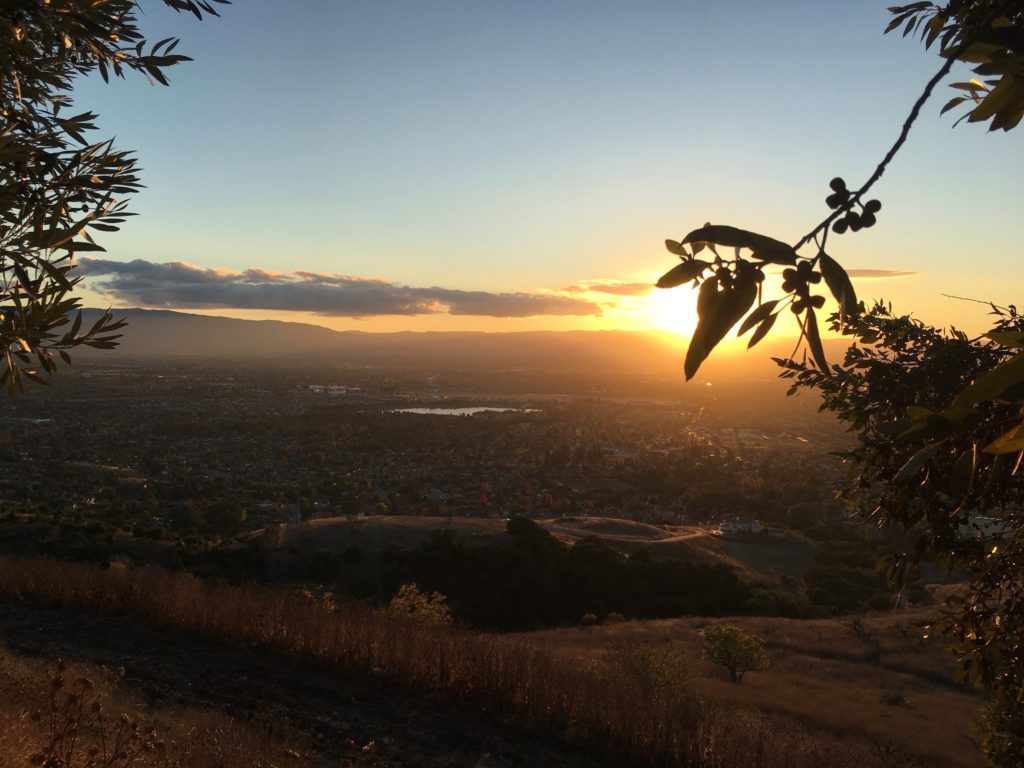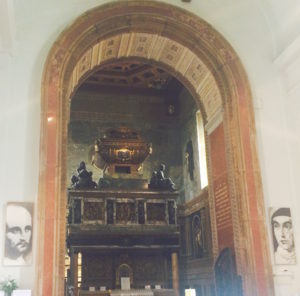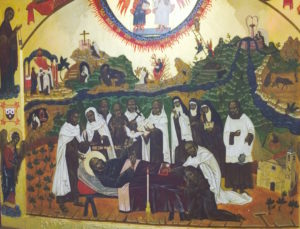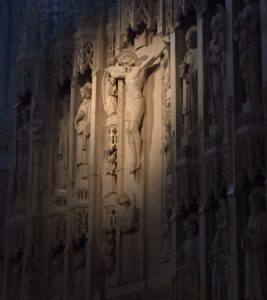
Mysticism is grounded in the Passion of Christ. In His Passion, He takes possession of all people. Fulton Sheen said, when Jesus ascended into Heaven, He mystically went into the heart of every human being that would ever live, and He took a part of our hearts with Him, so that our hearts would be incomplete until they are united to His Heart.
St. Augustine says, ‘Our hearts are restless until we rest in Him.’ Only in Christ can we fully discover ourselves. He is the Fullness of God, who fully reveals Man to us.
When Jesus takes possession of us, that does not mean that He imposes His Love. God is so amazing, in His humility and despite His great power. He is all-powerful, except for one thing: He does not interfere with our free will.
Love could not be otherwise. Because Love, by its nature, has to respect and reverence the other. Love does not micromanage, control, or manipulate. Love respects the other; it can only invite, can only welcome, can only say, “Follow me!” but can never order.
Love is a two-way street; it’s reciprocal and dynamic; it’s an exchange and dialogue. God is all-powerful, except for one thing – He will not interfere with free will.
Though by His Passion, He symbolically takes possession of all people, that doesn’t mean that our salvation is guaranteed. It means that His Love is unconditionally offered to all people, without limits. He offers His love unconditionally to all people, without exception. Nobody is excluded, except for one condition: that we recognize that we are sick and in need of a healing physician, who is Christ Himself.
The only condition is humility. Know that you can’t save yourself. That’s all it takes. Know you cannot save yourself; you are not your own savior. Don’t be like Eve in the garden, who thought she was going to become her own God – to discern what was good and evil, right and wrong, truth and lies – for herself. That’s the number one deception, the backbone of all lies and sins: pride.
Humility is the only thing that saves. Humility is the root that bears the fruit of love. Humility opens us the gift of Love. Without humility, we cannot receive the gift of Love— we’re closed!
Father Sophrony’s explains, “The cross, the resurrection, and the ascension of Jesus are the supra-cosmic victory of unqualified Love.” The supra-cosmic victory of unqualified Love. In other words, God’s Love is so unconditional, that when Jesus was crucified on the Cross, in Him, that sacrifice was all-encompassing of the entire cosmos, and that sacrifice brought victory. God’s victory prevails over every evil in every reality.
SOURCE: New Mexico Retreat, 2017, “First Love Exodus”




